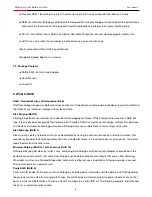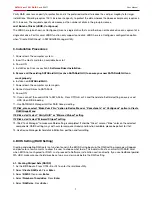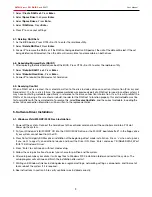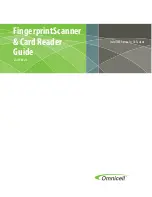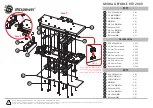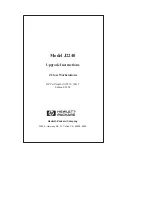
SATAII 4 port PCI RAID Card
RC217 User Manual
2
SATA II 4 Port PCI RAID Card
This Manual is for many Models of SATAII RAID5 HBA that uses Silicon Image SATA II SiI3124 chipset:
1) 32bit PCI bus host card
2) 64bit PCI-X bus host card
3) PCI Express (PCI-e) host card
When the HBA be used on Macintosh as a non bootable adapter, please refer the Mac manuals and Mac drivers
on the path of \Mac OS\SiI3124\Raid5 at the packed driver CD or download from
http://www.siliconimage.com/support/index.aspx?pid=0&cid=0&.
Important RAID5 information for User:
**** Before Host Card installation, we recommend the users to study this manual and the PDF file of
SATARAID5-UserGuide_v1.40.pdf at enclosed CD folder \ Raid5 SATA2_4Port \ SiI3124 \ Windows \ Gui first. The PDF
manual has more detail information on Raid architecture, Raid features, Raid installation, Raid setting and
Management software for Raid5 GUI (Graphical User Interface).
Q0: What is RAID5 Card?
A0: RAID5 Card means the SATA Host adapter (the PCI, PCI-X, PCI-e, Cardbus and ExpressCard) which can support
RAID5, RAID0, RAID1, RAID10, BigDrive and JBOD functions by software setting.
Q1: Can I install non-Raid (base) driver or SATARAID driver on RAID5 card?
A1: No, only SATARaid5 driver is used on RAID5 card.
Q2: How to use a single hard drive on RAID5 Card?
A2: New RAID5 GUI (Graphical User Interface) has a new “Pass-Thru” feature. “Pass-Thru” allows access to a new hard
drive or a used one that without any SATARAID5 configuration. If your current driver doesn’t support this “Pass-Thru”
feature, please download the new one and install it.
Q3: Why 2Port SATA II Host Card can support Raid5 or Raid10?
A3: When SATA Port Multiplier and multiple Drives be connected to 2Port SATA II Host Card, the setting of Raid 0, 1,
10, 5 and JBOD will appear on screen accordingly and automatically
Q4: What is Raid0?
A4: RAID0 also known as Stripping or FAST. Stripping is a performance-oriented, non-redundant data mapping
technique. Stripping arrays need at least two drives and use them to form a larger virtual disk.






